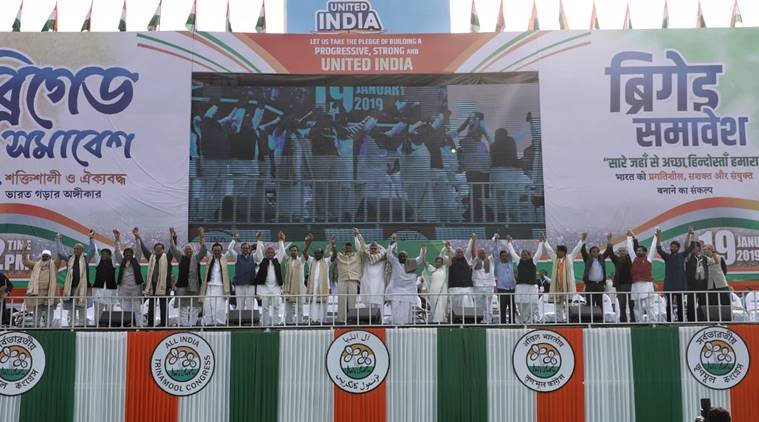Mahagatbandhan easier at macro level than on ground; here’s why
Political observers are justifiably cynical, because once again the uniting common minimum programme is a menacing rival who they find as a threat to Indian democracy and constitution.

Besides Prime Minister Narendra Modi’s unsurprising dismissal of the impressive mega opposition rally that West Bengal Chief Minister Mamata Bannerjee put up in Kolkata on Saturday, there’s widespread concern about the post-poll stability of the “Mahagatbandhan” given the number of parties involved and the ambitions of their leaders.
The rainbow alliance of 23 parties that saw 25 powerful political leaders from across the country joining hands to declare their war against Modi and the BJP in the 2019 elections indeed looked promising. But it also revived the memories of post-emergency coalition against Indira Gandhi in 1977 that ended up as just a flash in the pan.
Political observers are justifiably cynical because once again the uniting common minimum programme is a menacing rival who they find as a threat to Indian democracy and constitution.
What will happen once the threat is removed? That was the two-year life-story of the Janata government that dislodged, shamed and even jailed Indira Gandhi.
However, the more imminent problem is not the stability of the alliance after the elections — that too if at all they will be able to defeat the BJP and keep the Modi-Amit Shah duo out of power — but how exactly they will roll out the grand-alliance.
If the alliance, which promisingly doesn’t have a pan-Indian national character and will be led mostly by regional parties or national parties with regional pockets of influence, has to work, it has to field a single candidate against the BJP in every constituency. That’s what Abhishek Manu Singhvi, who was sent by Congress president Rahul Gandhi to Mamata’s rally, also seemed to suggest. The BJP has been a beneficiary of both a communally polarised electorate and multi-cornered contests resulting from opposition disunity. As the bye-elections in Karnataka and UP have clearly demonstrated, the BJP can be defeated if the contests are one-on-one.







































No hay comentarios:
Publicar un comentario